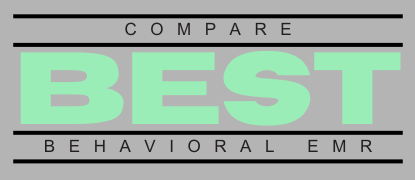
Choosing the right behavioral health EMR is crucial for practice success. EMR software tailored specifically for behavioral health providers not only simplifies administrative duties but also directly influences patient care quality. With numerous options available, how can you pinpoint the EMR features that truly matter for your practice? In this guide, we’ll walk you through the top five EMR features for behavioral health practices that directly impact treatment quality, streamline workflows, and enhance patient outcomes.
Why EMR Feature Selection Matters for Behavioral Health Providers
Behavioral health practices face unique challenges compared to general medical providers. The right EMR features can significantly influence your clinical efficiency and patient care quality. According to a study published by the National Institutes of Health (NIH), EMR systems tailored to specific clinical needs reduce errors, improve treatment consistency, and boost overall patient satisfaction. Focusing on the right features ensures your practice benefits from these advantages, ultimately leading to higher-quality patient care and better operational outcomes.
Top 5 Behavioral Health EMR Features to Prioritize
1. Behavioral Health-Specific Documentation Templates
General EMR systems often fall short when it comes to documenting complex behavioral health encounters. Your EMR should include documentation tools specifically designed for therapy notes, psychiatric evaluations, and treatment plans. Behavioral health-specific templates:
- Reduce documentation time, allowing more engagement with patients.
- Ensure compliance with industry standards and regulations.
- Enable accurate billing and minimize claim denials.
When comparing EMR options, ensure the system offers customizable templates that easily adapt to your practice’s clinical workflows.
2. Integrated Telehealth Capabilities
The rise of telehealth has dramatically transformed behavioral health care delivery. Integrated telehealth features within your EMR enhance accessibility and continuity of care by:
- Providing secure, compliant video conferencing directly from the EMR.
- Allowing seamless scheduling and billing for virtual appointments.
- Improving patient convenience and reducing no-shows.
If remote care is a significant part of your practice, prioritize EMRs that offer built-in telehealth solutions to avoid complicated third-party integrations.
3. Robust Patient Portal and Engagement Tools
A patient portal is not merely a convenience; it’s a critical engagement tool that empowers patients to become active participants in their mental health care. Key patient portal features include:
- Secure messaging between patients and providers.
- Appointment scheduling and reminders.
- Easy access to treatment plans, medication lists, and educational resources.
An EMR with strong patient portal functionality can significantly boost patient engagement and satisfaction, leading to improved treatment adherence and outcomes.
4. Comprehensive Reporting and Analytics
Behavioral health practices need to consistently track treatment effectiveness, patient outcomes, and operational efficiency. Robust reporting and analytics features within your EMR help you:
- Monitor clinical outcomes and track patient progress over time.
- Identify trends and areas where improvements can be made.
- Ensure compliance with regulatory standards and simplify audits.
Choose an EMR with customizable reporting capabilities tailored specifically for behavioral health practices to make informed, data-driven decisions.
5. Interoperability and Integration Capabilities
A behavioral health EMR should seamlessly integrate with other essential platforms, such as billing systems, labs, pharmacies, and CRM tools. Strong interoperability capabilities:
- Reduce manual data entry and minimize errors.
- Enable smooth care transitions and coordinated care across providers.
- Streamline financial management and revenue cycle processes.
Look for EMRs that prioritize interoperability to ensure your practice can leverage existing technology investments and maintain efficient workflows.
Putting It All Together: How to Evaluate Behavioral Health EMR Features
Now that you understand the key features your practice should prioritize, how do you evaluate different EMR providers effectively? Here’s a quick approach:
- Assess Your Practice Needs: Clearly define your clinical, administrative, and patient engagement priorities.
- Request Demos: Schedule personalized demos and test the software in a practice-like environment.
- Check Reviews and Testimonials: Look for feedback from similar-sized practices to gauge real-world performance.
- Evaluate Vendor Support and Training: Confirm ongoing support, training resources, and customer service availability.
Take the Next Step with a Personalized EMR Recommendation
Choosing the right behavioral health EMR doesn’t have to be overwhelming. Our experts are here to help simplify the process. By completing our free practice analysis, you’ll receive personalized recommendations tailored to your practice’s unique needs and goals. This valuable analysis helps you confidently select an EMR designed to enhance your operational efficiency and drive superior patient outcomes.
Don’t settle for generic solutions—prioritize these key EMR features for behavioral health and optimize your practice operations today.
